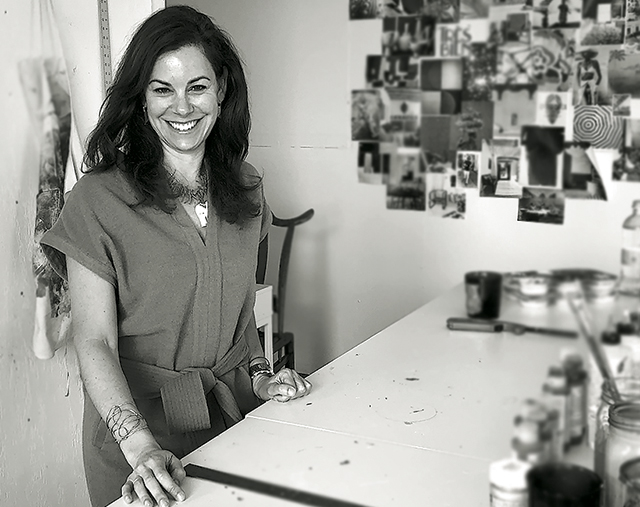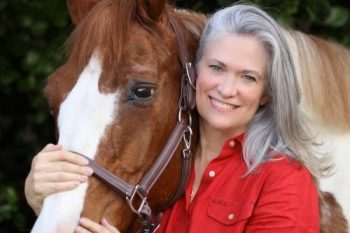I’m one of the Demon Deacons who kept saying yes to career opportunities and eventually found myself at the other edge of the continent, a world away from my birthplace of McDowell County, North Carolina. I was a resident of California from 2004 until mid-2009 in my job as deputy editorial page editor of The Sacramento Bee, which meant I traveled throughout the state and met people from all of its regions who visited our editorial board. The state enchanted me with its natural beauty and jazzed me with its innovation and diverse population. Sadly, I don’t recall ever meeting a fellow Wake Forester in California — I was always looking — but years later I learned that a few had lived not even a half-hour from my office in Midtown.

Today, it’s a different story. As one graduate in Sausalito told me, ‘‘Wake Forest is a hot school here now.’’ For the first-year class entering in fall 2008, Wake Forest received 324 applications from California high school students out of 9,050 applications overall. For fall 2018, that number rose to 558 out of 12,937. That’s 4.3 percent of applications, up from 3.6 percent a decade earlier. Every year I see more Californians in the journalism class I teach and note how California ranks high among the destinations for our newly minted graduates seeking their first job. More than 2,000 of the University’s alumni live in California.
What’s it like these days to be a Demon Deacon on the other coast? Our Wake Forest Magazine team wanted to know. In the profiles that follow, 25 Californians tell us about their lives in The Golden State, which, beyond Wake Forest, is the other place they call home.
—Maria Henson (’82), Wake Forest Magazine editor-at-large
Voices of California
(Jump to profile by clicking names)
- Serena Fisher Dugan (’94) — Artist and textile designer (Saulsalito)
- Jocelyn Burton (’80) — Founder and attorney at Burton Employment Law (Oakland)
- Joseph Belangia (’14) — Account manager for Google (San Francisco)
- Richard ‘‘Rick’’ Gentry (’70) — CEO of San Diego Housing Commission (San Diego)
- Joe Lawson (’90) and Nick Adams (’95) — TV writers (L.A.)
- Lindsey Ueberroth (’97) — CEO of Preferred Hotels & Resorts (Newport Beach)
- René Caldwell Gilbertson (’89, JD ’92) — Superior Court judge (Palos Verdes Estates)
- Travis Johns (’94) — Actor and writer (L.A.)
- Afton Vechery (’11) — Co-founder and CEO of Modern Fertility (San Fransisco)
- Dr. Stefani Wedl (’98) — Executive VP at Pacific Inpatient Medical Group (San Francisco)
- Brad Stauffer (’89) + Wes Stauffer (’87, MBA ’96) — Digital Foundry executives (Tiburon)
- Mary Leigh Cherry (’97) — Director of Tanya Bonakdar Gallery (L.A.)
- Cliff Scherb (’01) — Founder and coach at Tristar Athletes (Palos Verdes Estates)
- Marshall Milliken (’12) — Partner at Simon Equity Partners LLC (Mill Valley)
- JS Mayank (MA ’07) + David Carlyle (’06) — Writers; creators of ‘‘America 2.0’’ podcast (L.A.)
- Stephanie Bolton (’03) — Winegrower and sustainability advocate (Lodi)
- Jennifer Litwak (’06) — Founder and executive director of Housing on Merit (San Diego)
- John H. Crowe (’65, MA ’67) — Biology professor emeritus at UC Davis (Davis)
- Wendy Young (’88, MS ’89) — Chemist and drug researcher; VP at Genentech Inc. (San Mateo)
- Sara Creighton Boyer (’05) — Dentist; owner of Studio Dental (San Francisco)
- Paul (’02) + Rachel Venuti Bullock (’02) — TV writer/producer and event company manager (L.A.)

Serena Fisher Dugan (’94)
Artist and textile designer, Serena Dugan Studio + co-founder, Serena & Lily / Sausalito
Wake Forest was not on Serena Dugan’s radar until a college tour. ‘‘I drove onto the campus, and I was sold. … It felt like exactly what my college experience was supposed to be,’’ she says. It moved to No. 1 on her list and never disappointed her as she aimed to become a psychologist.
Except Dugan made a detour. After earning her degree with a psychology major and communication minor, she moved to Colorado with college friends and worked at a tech firm. On the side, she found herself delighted by painting yard-sale furniture. Thinking she wasn’t an artist but might like becoming a graphic designer, she enrolled in art school in Denver. ‘‘I completely jumped tracks,’’ she says, falling in love with the core curriculum, studying art in Italy and earning a degree in fine art.
In hindsight, she says, ‘‘I chose the perfect major … because so much of what I do is psychology.’’ Brand development. Interior design. Client work. Understanding customer needs. She ticks off the experiences, which are ‘‘deeply philosophical and psychological, and I am really merging that foundation with my craft, which is art.’’
She migrated eventually to San Francisco as a decorative painter. She launched Serena & Lily with Lily Kanter 14 years ago, first as a nursery brand, which expanded into a home and lifestyle brand with devoted followers. Today, Dugan remains on the board and is an investor, but her new playground is a light-filled warehouse studio on the water in Sausalito. She paints custom pieces and is developing a textile line.
‘‘I want to constantly break new ground. That’s my DNA, and I feel like the groundbreaking opportunity that gets me out of bed now is in redefining how we live with the arts,” she says. ‘‘We are so dominated by technology and machines and a separateness. I want to introduce objects into our world that feel like they have more of a beating heart. … More and more I think people will trust their instincts (when buying). … It’s not about exclusivity from a price point. It’s not about luxury. It’s about something that’s more personal, and I think we all need it. That’s what is exciting me right now because that feels like a mission.”
And she knows she’s in the right place — California, which she calls ‘‘unapologetically first in everything.’’ It used to be that the state was seen as ‘‘too fringe and too wild and too foreign.’’ Not anymore. It’s gaining mainstream appeal, she says, with people willing to embrace what California is about: ‘‘innovation, risk, newness and creativity.” With Dugan’s instincts about craftsmanship, a given is that soul is in the mix.
Jocelyn Burton (’80)
Founder and principal attorney, Burton Employment Law / Oakland
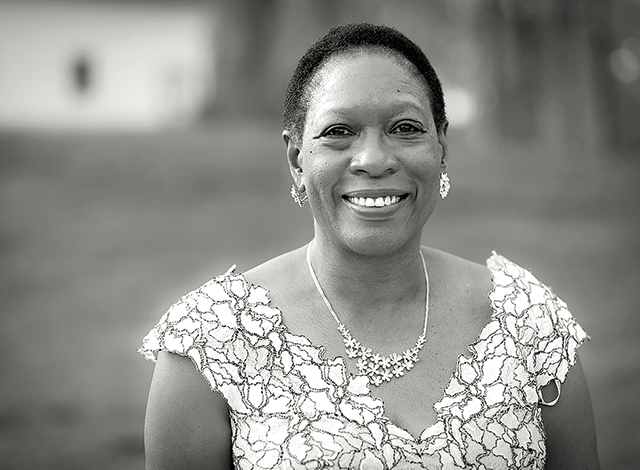
Jocelyn Burton, an ohio native who spent her teenage years in Richmond, Virginia, has made several cross-country moves back and forth to California over three decades. Today, she calls California home.
Burton’s first job after finishing graduate studies in public policy at the University of Texas at Austin was at the California State Legislature. She later earned a law degree from the University of Chicago and embarked on a distinguished legal career in private practice and public service, including as an assistant U.S. attorney in San Francisco. She opened her law firm in Oakland in 2011.
‘‘I’m an Oakland booster,’’ she says. ‘‘I know in the popular media Oakland is a scary place,” but that’s not at all her experience, where her last neighborhood was like a big family, with all kinds of people, game nights and garden walks. In her law practice, she says, ‘‘I have people of all ages, all races, all socio-economic groups. I have C-suite-level clients. I have clients whose first language is Mongolian and others who are minimum-wage workers.’’
The ‘‘diversity and easiness of diversity’’ make California home for Burton. But that doesn’t mean her Wake Forest community is any less important to her. She serves on the Board of Trustees, bringing the perspective of a lawyer who has represented victims of discrimination and as an African-American woman known during college for being unafraid to challenge the status quo. She is a 2016 Distinguished Alumni Award winner and a past member of the Alumni Council. This year, she welcomed a Wake Forest law student to be an intern at her firm.
She sees more arrivals ahead. ‘‘What’s going on in the Bay Area is almost like the new gold rush,’’ she says, pointing to how young entrepreneurs are flocking there. ‘‘There are going to be more and more Californians who are part of the Wake Forest family.”
Joseph Belangia (’14)
Account manager, Google / San Francisco
 In his moves from Wake Forest to Boston to San Francisco, Joseph Belangia has learned that there isn’t one set path that you have to follow. The biology major became an information systems fellow, then a marketing manager. Now he’s an account manager at Google.
In his moves from Wake Forest to Boston to San Francisco, Joseph Belangia has learned that there isn’t one set path that you have to follow. The biology major became an information systems fellow, then a marketing manager. Now he’s an account manager at Google.
‘‘Life is not linear; there is no A,B,C to get a job at Google, for instance,’’ says Belangia, who moved to San Francisco to work with Google Customer Solutions almost two years ago.
‘‘I focused less on the exact move — I never had the idea ‘I need to move to San Francisco by 2017’ — and more on the skills and things that I could control,’’ he says. Then a Google or a Facebook would be interested in me. If you develop yourself, then that’s what’s going to make companies interested in you, and that could make a move to Boston or San Francisco or New York possible.’’
Belangia’s first move was a short drive from High Point, North Carolina, to Wake Forest. The first in his family to attend college, he received a Magnolia Scholarship. He majored in biology and planned to pursue a career in genetic research or genetic counseling until he went down a different path. An aptitude for technology led him to a part-time job in Information Systems and, after graduating, a one-year stint as a Wake Forest Fellow in IT.
After leaving Wake Forest, his IT background and his biology research skills came together to help him land a position researching and developing mobile marketing plans at Fiksu, an ad-tech startup in Boston. The business experience he gained prepared him to land a job at Google, where he helps small and midsize companies reach their customers.
Belangia says he enjoys the food scene in San Francisco and the vibe of young professionals. And he’s pleased that more Wake Foresters are making the trek west. ‘‘I’ve noticed an uptick in alumni who graduated one or two years ago.’’
Richard ‘‘Rick’’ Gentry (’70)
President and CEO, San Diego Housing Commission / San Diego
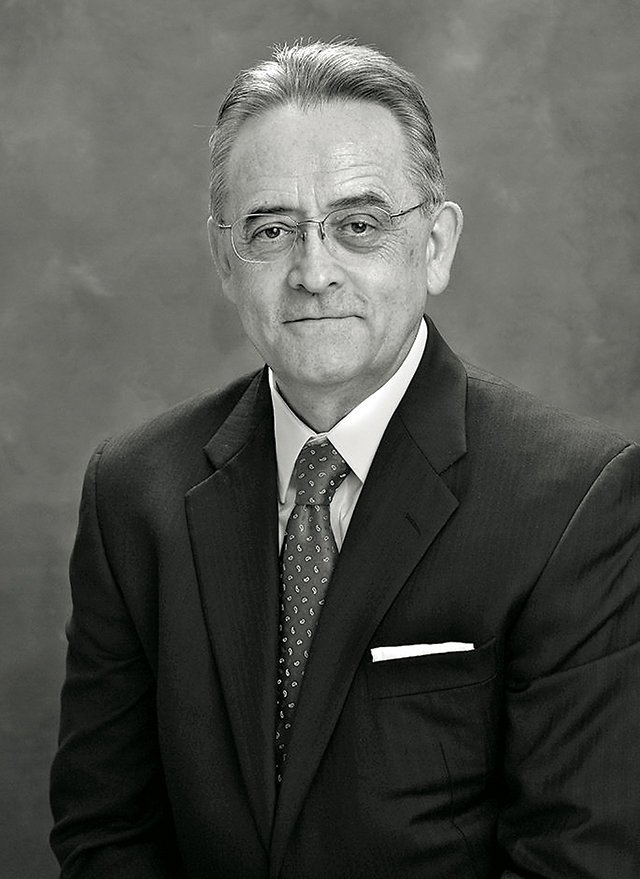 Rick Gentry spent most of his life in the South before moving to California a decade ago to lead one of the largest housing agencies in the country.
Rick Gentry spent most of his life in the South before moving to California a decade ago to lead one of the largest housing agencies in the country.
He oversees the San Diego Housing Commission, with 330 employees and a $388 million budget. It serves more than 90,000 low-income residents a year through programs to provide housing and housing vouchers, rehabilitate homes and apartments, finance new housing units and assist first-time homebuyers.
Moving to The Golden State was a golden opportunity to try innovative solutions to address housing problems — such as renovating a closed historic hotel to provide housing for veterans — rather than rely on a one-size-fits-all federal housing model, he says. ‘‘I knew San Diego would be forward-looking and innovative and willing to give me a shot at pretty radical things, and that has been the case. Californians are always looking ahead. What happens here is going to happen in the rest of the country eventually.’’
Gentry didn’t envision a career in housing when he came to Wake Forest from Elkin, North Carolina. He planned to become a minister until he discovered that he could serve in a different way by helping people find affordable housing. After starting his career in Greensboro, North Carolina, he led housing authorities in Austin, Texas, and Richmond, Virginia. He spent a decade in the private sector financing affordable housing in Chicago and Washington, D.C., before taking on the challenge of reforming San Diego’s housing commission.
Gentry, 70, has become a leading advocate of using new approaches, including public-private partnerships and vouchers, to meet housing needs. He is frequently called on to lead national housing groups and to testify before state and national legislative committees. In 2017, he received a lifetime service award from a national housing association.
When he moved to California, Gentry packed an important ideal from his time at Wake Forest. It features prominently on the housing commission’s website and publications. ‘‘Shortly after arriving here I chose our motto, ‘We’re About People,’ as a vernacular version of Pro Humanitate. Has a nice ring to it, don’t you think?’’
Joe Lawson (’90) and Nick Adams (’95)
TV writers for ‘‘BoJack Horseman’’ / Los Angeles

What are the odds? Nick Adams (right) grew up in Eden, North Carolina, and Joe Lawson (left), a native of Bristol, Tennessee, ate lots of barbecue in Eden and spent ‘‘a ton of time’’ at his grandparents’ home eight miles away.
Yet the two Deacs never met — their time at Wake Forest didn’t overlap — until they began working together in the writer’s room at ShadowMachine, an animation studio and production company in a subdued warehouse-chic building in Los Angeles. They and their team hash out the storylines and jokes for ‘‘BoJack Horseman,’’ a critically acclaimed Netflix animated comedy about a has-been sitcom star (a horse who walks upright and wears clothes) trying to make a comeback. Emily Nussbaum of The New Yorker magazine called the show ‘‘one of the wisest, most emotionally ambitious and … spectacularly goofy series on television.’’
Lawson, a writer and producer, left the show for a time, and Adams was hired in the fourth season. When Lawson returned and discovered another Deac in the room, ‘‘we started sharing stories,’’ Lawson says. Each writer praises the other’s talent.
Lawson, whose degree in economics ‘‘has not been applied,’’ worked in advertising in Richmond, Virginia, when he wrote the caveman GEICO commercials — ‘‘So easy, a caveman can do it.’’ He sold ABC a TV show called ‘‘Cavemen’’ in 2007. It ended a year later, but his Hollywood career took off with ‘‘Modern Family’’ 18 months later. In 2017, he won the Writers Guild of America Award in animation for an episode of ‘‘BoJack.’’ He has written for many shows, including ‘‘Shameless,’’ starring Oscar-nominated William H. Macy, and ‘‘This is Us.’’
Adams, a speech communication major, fell for Wake Forest in high school during a weeklong camp on campus for high-achieving African-American students. ‘‘It wasn’t like there was a bunch of Urkels, either. We were just cool kids who happened to (care) about our grades.’’
In college, he had no idea what he wanted to do until two people in two weeks told him he should do standup. He loved film, TV and comedy obsessively but had never considered performing.
Later, he and his wife moved to Los Angeles so he could go all-in as a comedian, but ‘‘it’s so hard, so cutthroat.’’ While in Arizona for his wife’s pursuit of an MFA in writing, he wrote ‘‘Making Friends with Black People’’ (2006), a smart, funny, first-person book on race relations. (Yes, he tells a few Wake Forest anecdotes.)
Back in L.A., Adams happily gave up standup late nights and road trips for a writing job at NBC’s ‘‘Perfect Couples,’’ then ‘‘New Girl.’’ ‘‘I got my first paycheck, and it was more than I made in all the standup that I had ever done.’’
The two Southerners have grown to appreciate Los Angeles’ charms.
Lawson’s ‘‘romantic notion’’ of California shattered when he saw the reality, but ‘‘I’m just really attracted to it. … There’s never a dull moment in the industry, and every single weekend you can do something exciting or you can just go hike.’’
Adams says he had to get ‘‘some solid ground’’ in his career before he could enjoy the city. ‘‘Now I’m totally a California person, totally an L.A. guy. I can’t imagine myself being anywhere else.’’
Lawson says his greatest lesson from Wake Forest was resilience. With the intimidating caliber of students and professors, ‘‘you realize, … ‘I’m going to get knocked down, and I’ve just got to take the punch and get back up.’ If you’re not able to do that, definitely don’t come to Hollywood.’’
Adams says the many days he and a friend held ‘‘office hours’’ entertaining classmates at Benson University Center prepared him perfectly for the writer’s room. ‘‘We would hold court. We would joke. They would leave. Other people would come in, and I remember thinking, ‘I’m good at this.’’’
Lindsey Ueberroth (’97)
CEO, Preferred Hotels & Resorts / Newport Beach
 Lindsey Ueberroth started traveling even before she was born. Her mother was a TWA flight attendant when she was pregnant with Lindsey, who grew up with the travel bug and has visited 100 countries.
Lindsey Ueberroth started traveling even before she was born. Her mother was a TWA flight attendant when she was pregnant with Lindsey, who grew up with the travel bug and has visited 100 countries.
Ueberroth, a Southern California native, oversees her family’s Preferred Hotels & Resorts company with corporate headquarters in Newport Beach and more than 650 independent properties in more than 85 countries. She became president in 2010 and succeeded her father as CEO in 2014. The next year, she spearheaded a rebranding on what she sees as the biggest travel trend — focusing on experiences rather than resort tiers or stars. ‘‘People love to travel because they create memories and experiences that I think most people now believe are more important than things.’’
It worked. As president, she doubled reservations revenue and added properties in 25 new countries. In 2015, HOTELS magazine named her one of the world’s top 10 hoteliers. Hotel Management magazine named her in 2017 as one of the 30 most influential women in hospitality.
Taking over for her father, John Ueberroth, was a proud moment. He is still executive chairman. ‘‘He was very good at passing the baton. He always says, ‘I’m here for you.’’’ Her mother, Gail, is vice chairman and chief creative officer. Her brother, Casey (’01), is a board member.
Lindsey visited colleges everywhere, but two days at Wake Forest during Greek Week cemented it. (She became a Tri-Delt.) ‘‘I loved being in the South. … The people were very friendly. I loved that it had seasons.’’
After graduating as a communication major, she worked as a change management consultant. She eventually returned home to the California roost to help her father with a ‘‘tailor-made change project’’ installing a new management system.
She still hasn’t tired of traveling. (Favorite spots? India and South Africa.) But she’s always happy to get back to the great weather and diverse experiences in what will always be home — California. ‘‘It just suits my personality.’’
René Caldwell Gilbertson (’89, JD ’92)
L.A. County Superior Court judge / Palos Verdes Estates
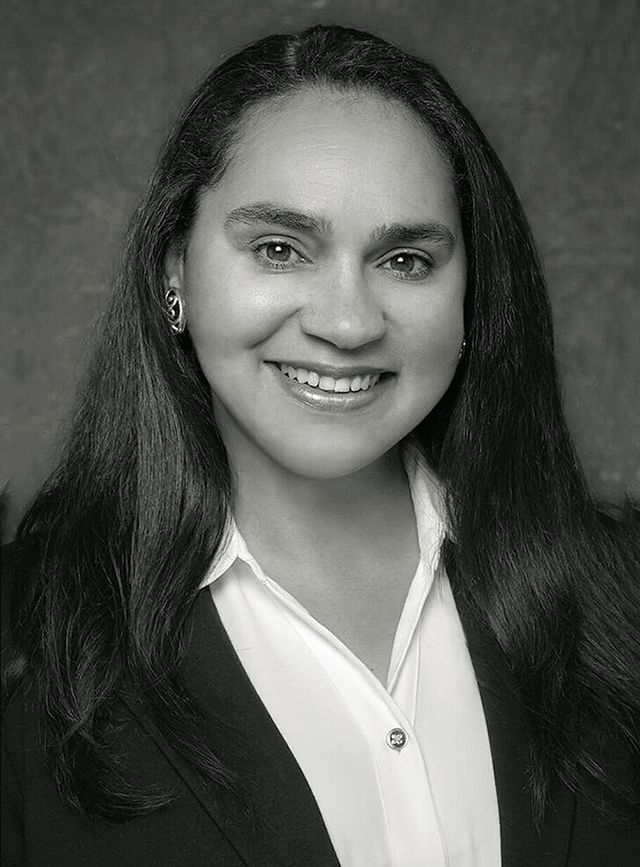 In more than 25 years as an attorney, René Gilbertson saw many severe cases of child abuse and neglect. ‘‘It was difficult, having four children of my own. It was very heartbreaking.’’
In more than 25 years as an attorney, René Gilbertson saw many severe cases of child abuse and neglect. ‘‘It was difficult, having four children of my own. It was very heartbreaking.’’
She avoided burnout by taking one case at a time, relying on a team and realizing ‘‘that these issues were a lot bigger than your discomfort with it.’’
Her most rewarding work was representing minors in foster care. ‘‘Things have changed a lot since the early ’90s, but at that time we had almost 60,000 children, if you can imagine, in the foster-care system in Los Angeles County. I think a lot of people agreed there has to be a better way to do this.’’
Public and advocacy organizations came together to push for more support, classes and counseling to try to address problems that the legal system couldn’t solve.
In November, she left her job as senior deputy counsel for Los Angeles and took office as an elected judge in Los Angeles County Superior Court, seeing the bench as a new way to serve. ‘‘It’s a very different experience but very rewarding,’’ she says. Even when she has to send a young person to jail, ‘‘you really have an ability to have an impact, or say something, an encouraging word, to motivate someone.’’
At Wake Forest, she served in student government and founded the Pi Omicron Chapter of Delta Sigma Theta Sorority Inc., a public-service sorority for women of color. When her boyfriend, now her husband, Jack Gilbertson (JD ’92), took a position in L.A., she finished her law degree with a visiting semester at Loyola Law School. Her husband practices corporate and health care law for Dentons, a global firm.
She loves California’s diversity of cultures, but North Carolina will always be home. She learned from Wake Forest and her parents in Morganton to stay true to her values: ‘‘being a good person, being kind and nice to everyone and putting family first and putting other people before yourself. … That is what I carry with me every day.’’
Travis Johns (’94)
Actor and writer / Los Angeles
Travis Johns is certain he would not be an actor if not for Wake Forest.
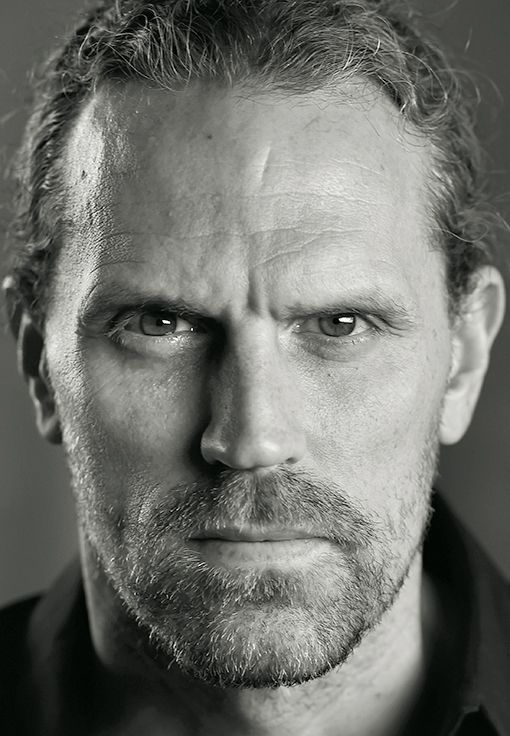 A scholarship football wide receiver from a small town in East Tennessee, he remembers sitting on the bus headed to what was then Groves Stadium. His life revolved around football and his hope to play professionally.
A scholarship football wide receiver from a small town in East Tennessee, he remembers sitting on the bus headed to what was then Groves Stadium. His life revolved around football and his hope to play professionally.
‘‘It was a beautiful fall day. It was homecoming. I had about 20 people (family) in the stands. We were playing Duke. I was starting. My best friend (Jimmy Kemp ’93) was quarterback. … I remember saying, ‘Enjoy this, Travis, you never know when it’s going to end.’’’
Johns left the game on a stretcher with a torn spleen. He flatlined twice and was unconscious for seven days. Football was over.
But something wonderful happened. Kemp urged him to study abroad in London. Johns went with Provost Emeritus Ed Wilson (’43, P ’91, ’93) and learned about theater and film. ‘‘I saw so many plays with Dr. Wilson, and he’s such a movie buff. It was amazing being over there with him. It was tough to come back.’’
Johns, a speech communication major, worked for a while in a ‘‘miserable’’ sales job in Nashville before heading to Montana. He was bartending when actor and writer Sam Shepard walked in, and they talked. ‘‘He’s one of my heroes as far as writing.’’
Johns took off for Los Angeles, determined to act and write. He had never done either. It took seven years to land a paid role. Today, he has two screenplays under option and recurring roles in the ‘‘Goliath’’ series with Billy Bob Thornton and ‘‘Are You Sleeping?’’ with Aaron Paul (‘‘Breaking Bad’’).
As for Los Angeles, ‘‘I’ve never been in a place where I love it so much one day and absolutely detest it the next,’’ he says. Early on, ‘‘every fiber in me was saying this is too hard, this is too lonely.’’ Marrying a local girl made all the difference. ‘‘Now there’s a refuge to come to.’’
Wake Forest opened his horizons. For example, he met a friend’s father who asked him what he was reading. ‘‘I never forgot that. I’ve become a voracious reader just because of that man on the campus that I didn’t really know. … And it changed my life. I’m convinced I’m doing what I’m doing because of seeing that at Wake.’’
Afton Vechery (’11)
Co-founder and CEO, Modern Fertility / San Francisco
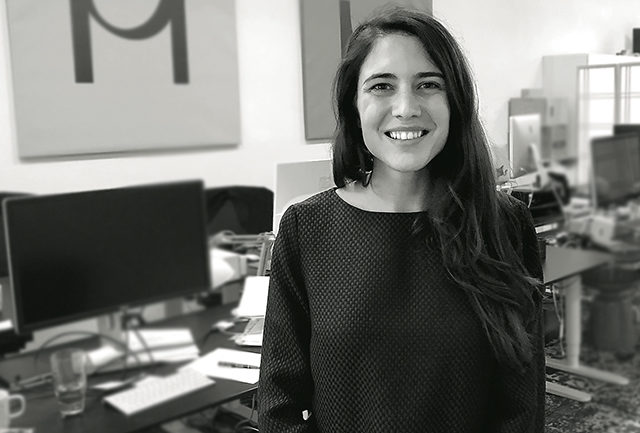
You’ll see Afton Vechery’s name in Forbes, Wired, Entrepreneur, Glamour and TechCrunch. She’s on the list of panelists this year at SXSW and The Wall Street Journal’s Tech Health conferences, and she’s not even 10 years out of Wake Forest.
Vechery arrived on campus having created a water-quality testing business in her home state of Maryland as a high school student. She already was on fire for entrepreneurship; she never wavered. Her major was business and enterprise management with a dual concentration in new business development and new science development. She had one minor in neuroscience and another in entrepreneurship and social enterprise. Her first job out of college was working in health care private equity.
In 2013, she moved to the West Coast as ‘‘employee No. 1’’ hired at Autism Acumen and later served in strategic operations roles at various health startups. Backed by $7 million in venture capital, Vechery’s latest business, with co-founder Carly Leahy, is Modern Fertility, a women’s health company that offers $159 at-home fertility hormone testing kits and aims to educate women about their reproductive health.
The 13-employee company in the Mission District has the classic startup look with a waiting area in a revamped garage and a sea of colored sticky notes on a wall near the computers. Vechery seeks to hire people with ‘‘grit, curiosity and humility.’’ Joining an early-stage startup can be ‘‘a crazy decision,’’ she says, because of the nonstop work when there are easier options at bigger companies. ‘‘Yes, it’s crazy, but the highs are highs.’’
‘‘To have that feeling of being able to see the output of your work, to build something from scratch and get it out there and get women reacting to it and giving you feedback, that feeling is really powerful and something that I find incredibly motivating,’’ she says.
And California is a natural fit. ‘‘When you’re here, every idea — it’s kind of like, ‘Yes! And how can we make it work?’ That energy … creates a different trajectory and level of innovation that I think is really hard to match in other areas of the country.’’ But, she admits, ‘‘I’m biased.’’
Dr. Stefani Wedl (’98)
Executive vice president, Pacific Inpatient Medical Group / San Francisco
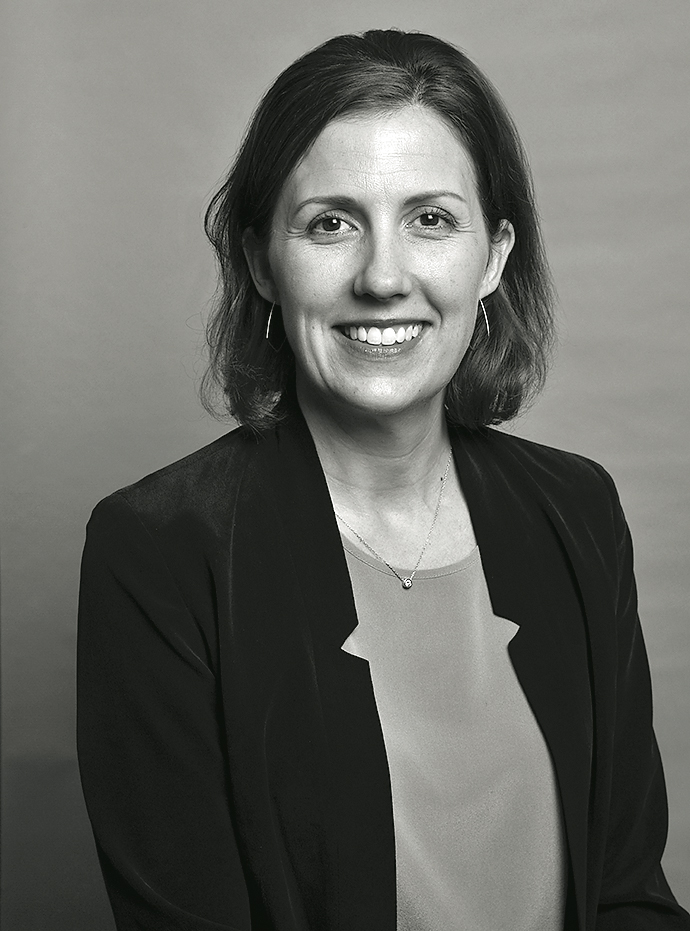 Stefani Wedl was somewhat of a novelty when she was at Wake Forest. Raised in Pleasant Hill, California, she was one of only 14 students from the state in her first-year class.
Stefani Wedl was somewhat of a novelty when she was at Wake Forest. Raised in Pleasant Hill, California, she was one of only 14 students from the state in her first-year class.
Last fall, there were 50 first-year students from California, an increase that Wedl has noticed from afar. ‘‘Now I meet alumni from California all the time and parents of current students from California,’’ she says.
Wedl has deep California roots, but she also has Wake Forest roots beginning with an uncle, Bedford Black (’42). Wedl’s mother, Carole Beatty Wedl (’71), was from Kannapolis, North Carolina, and moved to California after getting married. Stefani’s sister, Dr. Courtney Wedl Pickering (’00), and brother-in-law, Dave Pickering (’00, MSA ’01), live in Moraga, California.
Wedl wanted to go to college in a different part of the country, so she made the cross-country trek to Wake Forest. She expanded her horizons when she studied at Casa Artom in Venice with Professor of Philosophy Ralph Kennedy. ‘‘I had never been to Europe before I popped into this amazing mansion on the Grand Canal. Living, eating, traveling with 20 other students really opened my eyes to the whole world.’’
After graduating from Icahn School of Medicine at Mount Sinai in New York City, Wedl returned to California. She is executive vice president of Pacific Inpatient Medical Group, which provides hospitalist services in the Bay Area, and she continues to practice medicine at California Pacific Medical Center.
Wedl loves the diversity and international flavor of San Francisco. She wants to make sure her two children are prepared for a multicultural world, so they attend a private immersion school where they learn Mandarin half of each school day.
‘‘San Francisco has a lot of the things you can get in big cities but on a much smaller scale,’’ she says. ‘‘I love the beauty of the city, both natural and man-made. I marvel at the Victorian houses, and I never tire of views of downtown, the Bay or the bridges. Today, I drove across the Golden Gate Bridge to work. Can’t beat that!’’
Brad Stauffer (’89) and Wes Stauffer (’87, MBA ’96)
Top executives, Digital Foundry Inc. / Tiburon
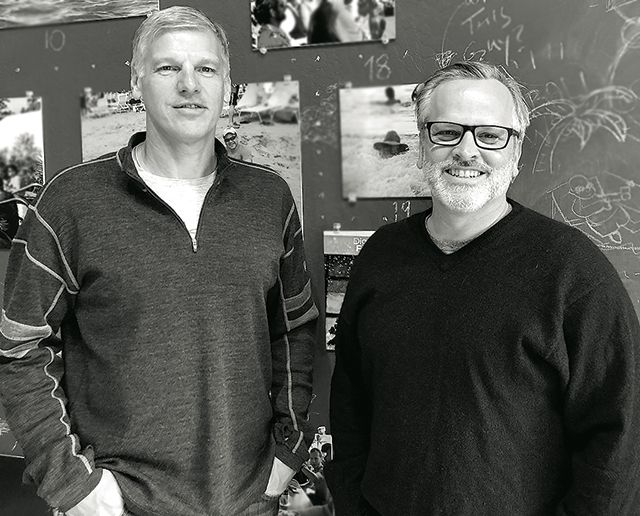 On this day in January, it’s time to squeeze in a quick meeting with the Stauffer brothers before they fly away. They’re headed to Maui to host their staff’s retreat, which amounts to an extra exclamation point considering the staff already works across the street from the San Francisco Bay.
On this day in January, it’s time to squeeze in a quick meeting with the Stauffer brothers before they fly away. They’re headed to Maui to host their staff’s retreat, which amounts to an extra exclamation point considering the staff already works across the street from the San Francisco Bay.
Check out the Digital Foundry website to discern the vibe of this company run by two Demon Deacons who grew up in Connecticut. Photos and their labels depict the quintessential Bay Area tech experience: ‘‘Practicing Yoga at Lunchtime,’’ ‘‘Organized Sticky Notes,’’ ‘‘Analog Break’’ (chess board), ‘‘Dunk’’ (basketball feats), ‘‘Digital Jellyfish Happy Halloween,’’ ‘‘Pensive Coding’’ and ‘‘Light Hearted [sic] Meeting Prep.’’ Add to the mix the dogs, bikes and ‘‘pimped-out’’ cubicles and computer keyboards. It’s a culture that the Stauffer brothers have been careful to cultivate as leaders of this company, established by their cousin in 1992.
Brad, who was an economics major, is president, overseeing sales. He started in banking. Wes, who majored in history and English (and also played football), is chief strategist, overseeing operations, finance and consulting. His early career was in business consulting. Neither brother is a coder.
‘‘Many companies will say, ‘Oh, it’s OK to work from home, and we’re like, ‘No, be in here,’’’ says Brad. ‘‘We’re old school. We like to work as a group because (of) that synergy of grabbing an engineer and a senior consultant with 20 years of experience and a young recent grad. … Put all those people together, and really good things happen.’’
Digital Foundry does custom software development and consulting for clients all over the world — Wes’ last business trip was to Sri Lanka — and employs 45 to 60 people. It has been in the news in recent years as a partner with the global design firm IDEO in assessing how to modernize Los Angeles County’s aging voting system with a human-centered design approach. The Los Angeles County Board of Supervisors awarded Digital Foundry a contract last year to design the software for tabulating ballots and the ballot print formats. The assignment is among several for different contractors undertaking the massive voting system overhaul.
Wes describes working with IDEO in this way: ‘‘They’ll come up with something super creative, and then we have the guys who can take that understanding and then say, ‘Well, what’s actually possible out of that and in a reasonable amount of time?’ And then try to turn it around.’’
Wes and Brad both extol the lifestyle of the Bay Area — the natural beauty and the attraction for competitive people looking for opportunity. Like many employers in the area, they’re always on the hunt for talent — ‘‘digitally literate folks that have incredible attitudes,’’ says Brad. ‘‘And tremendous curiosity, because tremendous curiosity is what will get you to go from working with an automotive company to working with a bank to working with a voting system, all within the same day.’’
He chimes in with another trait: ‘‘intestinal fortitude’’ to keep iterating. It can be hard, he says, but ‘‘find the company that has that same mindset, and it’s a lot of fun.’’
And, as the Stauffers demonstrate, that fun is not only for the coders in the ‘‘pimped-out’’ cubicles with the cool keyboards. From here, at least on this January weekend, all roads lead to Maui.
Mary Leigh Cherry (’97)
Director, Tanya Bonakdar Gallery / Los Angeles
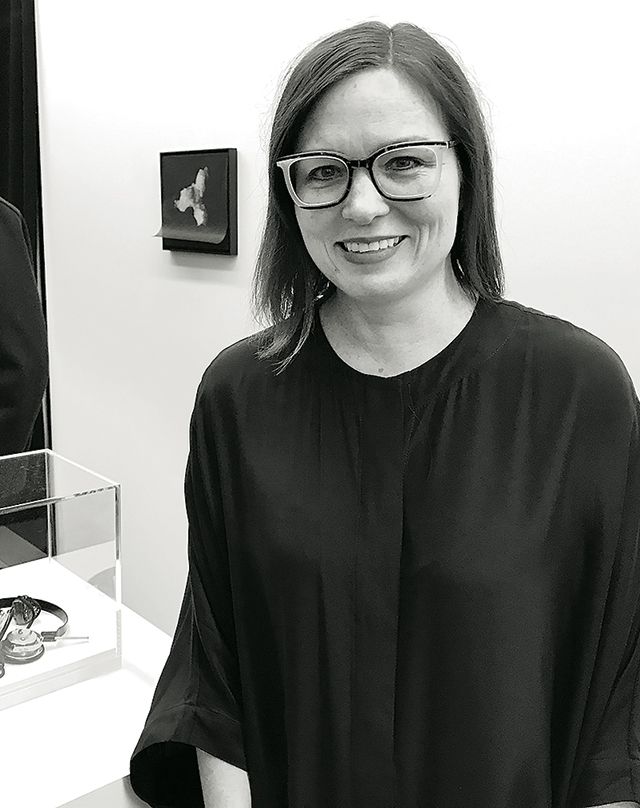 In a flowing dress of deep blue, Mary Leigh Cherry floats through the opening reception for the first-ever Los Angeles showing of the ethereal art of Argentinian Tomás Saraceno.
In a flowing dress of deep blue, Mary Leigh Cherry floats through the opening reception for the first-ever Los Angeles showing of the ethereal art of Argentinian Tomás Saraceno.
It’s mid-January, soon after the acclaimed artist’s record-attendance exhibition at the sprawling Palais de Tokyo in Paris, which gave him carte blanche to fill its entire space.
‘‘It feels good to be able to present exhibitions like this,’’ says Cherry, director of the new Tanya Bonakdar (Bah-NOK-dar) Gallery. Cherry, after operating her own galleries, made a career transition in 2018 to help Bonakdar, a successful New York gallery owner, expand into Los Angeles.
Cherry knows the value of opening new doors. At Wake Forest, she studied pre-med chemistry. (‘‘I had always done science.’’) She loved classical art, too, and decided to combine her passions to become a conservator. But on a Student Union Art Acquisition Trip to New York City, Cherry fell under the spell of contemporary art. She wanted to work with living artists who ‘‘deal with the ideas of our time; they deal with the problems of our time; they celebrate our time; they can critique our time. It’s a way to reach out to everyone.’’
She spent her sophomore year at Casa Artom in Venice, Italy, and returned there after graduating with an art degree to work as a teaching assistant to Tom Phillips (’74, MA ’78, P ’06). A native of North Carolina, she wanted to stay abroad, but work visas were scarce.
She got a job with the Santa Monica Museum of Art (now the Institute of Contemporary Art, Los Angeles). Within a year, she had started her own gallery.
She already appreciated California’s rich geography — ‘‘snow, beach, desert, whatever you want, redwoods — it’s just incredible.’’ In Los Angeles, she found an art world in line with her entrepreneurial spirit. She fell in love with the city’s international culture, its sustainability focus and its secret gems. ‘‘You can live here forever and never get bored.’’
She sees it as a great place to live in service to humanity. ‘‘That’s something Wake Forest instills in its students, and it always has.’’
Cliff Scherb (’01)
Founder and principal coach, Tristar Athletes / Palos Verdes Estates
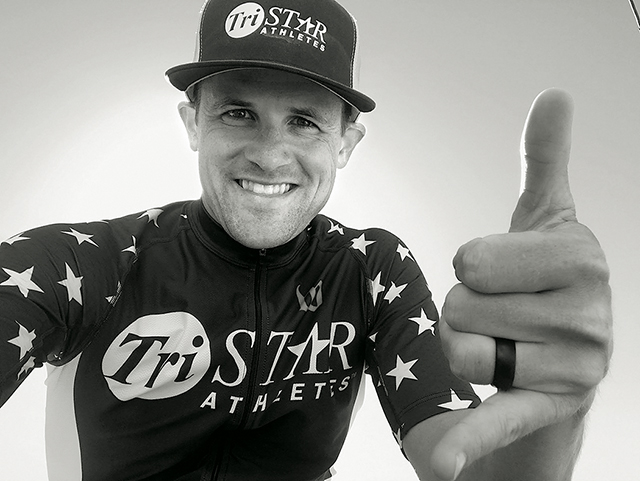
Cliff Scherb has never stopped moving, even though he was diagnosed at age 9 with Type I diabetes.
His business degree helped him win a sales job after graduation at Merck Pharmaceuticals in New York City, but his boss told him a promotion would take a few years. ‘‘I was super hungry, and I couldn’t sit still, so I started doing triathlons.’’
Soon he was racing at an elite level. He says he set a world record, since surpassed, by an athlete with diabetes in the grueling Iron Man Triathlon (2.4-mile swim, 112-mile bike ride and 26.22-mile marathon).
His next move was big. He left his job ‘‘just to be happy’’ and started a company to coach endurance athletes. He moved it cross-country a few times before landing in Southern California to take advantage of year-round outdoor training. His wife, Kimberly, who danced in the New York City Ballet, the Rockettes and Cirque de Soleil before becoming an acupuncturist, also nudged them there to be closer to her family.
Today he works in their elegant home in Palos Verdes Estates, south of Los Angeles, with ocean and hills nearby for athlete training classes and for the 150 participants in a swim-bike-run he set up just for fun every Saturday in Redondo Beach.
His company,Tristar, trains athletes, including professional world champions, and teaches coaches online all over the world. It specializes in leveraging big data with algorithms to improve performance in the most physiologically efficient ways, a tech approach that grew from Scherb’s coding of his own stats to manage his diabetes during exercise. Athletes average a 30 percent increase in performance with Tristar’s help, he says. Scherb also coaches diabetic athletes.
He credits Wake Forest with preparing him for his ultimate career as an entrepreneur. ‘‘All of those really difficult business school core-requirement courses were worth every minute I ever spent in them,’’ he says. ‘‘It’s just the analytical approach to things to problem-solve.’’
Marshall Milliken (’12)
Partner, Simon Equity Partners LLC / Mill Valley
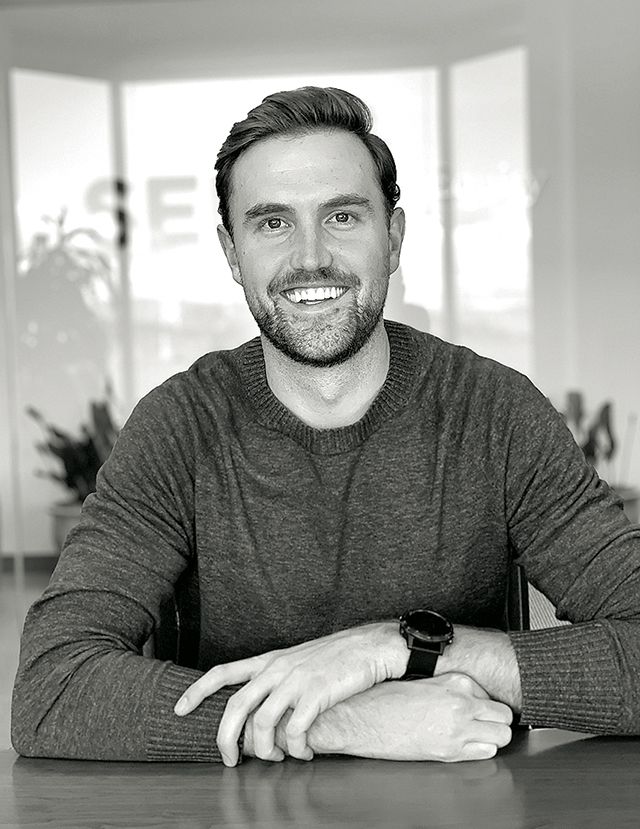 At age 29, Marshall Milliken is swimming in the best of California waters.
At age 29, Marshall Milliken is swimming in the best of California waters.
He partners with Stephen H. Simon to oversee a consumer-oriented, sustainably-focused investment portfolio of several hundred million dollars for the Simon family through its Simon Equity Partners in San Francisco. (Simon Property Group, based in Indianapolis, is the largest retail real estate investment trust and largest shopping mall operator in the United States.)
Milliken does business with what he calls ‘‘very unassuming, smart, driven, scrappy entrepreneurs and investors’’ in a casual environment that he sees as typical of San Francisco. He recently spent a full day at work with a CEO while skiing in Tahoe. Then there’s that Pacific Ocean.
‘‘I take a lot of meetings on my surfboard,’’ he says. California has helped him realize ‘‘hey, you don’t necessarily have to be behind the phone or in a conference room to go get something accomplished.’’
And accomplish he has.
After two years at BB&T Capital Markets, he had ‘‘done my East Coast time’’ in investment banking and looked West, closer to his home state of Wyoming. Two years into a ‘‘fantastic experience’’ in San Francisco at Piper Jaffray, which does middle-market consumer deals of $500 million to $10 billion, he was headed for burnout. He accepted the persistent calls of a headhunter who wanted to pitch him to a mystery client — the Simon family.
He likes Simon Partners’ focus on businesses committed not only to investors but to employees and the community. That can mean investing in an LGBTQ-founded and women-owned coffee company with organic harvests, pricing transparency and health care insurance for every employee. Or it can mean choosing environmentally conscious vendors and reducing the energy use at the arena for the Simon family-owned Indiana Pacers basketball team.
Milliken credits Wake Forest’s challenging academics with preparing a ‘‘hockey player-slash-ranch hand’’ for ‘‘this hyper-fast-paced, dynamic, demanding environment that I’m in now.’’
And he says Pro Humanitate was quietly embedded in him. In his fraternity, Sigma Chi, ‘‘we were doing our best to give back to the community and the school, all while still having a good time.’’
JS Mayank (MA ’07) and David Carlyle (’06)
Writer+director and writer+producer / Los Angeles
 Neither J S Mayank nor David Carlyle set out to become Hollywood writers, and both were surprised at the instantaneous ease with which they became best friends and writing partners at Wake Forest and beyond.
Neither J S Mayank nor David Carlyle set out to become Hollywood writers, and both were surprised at the instantaneous ease with which they became best friends and writing partners at Wake Forest and beyond.
‘‘I knew it within just a few minutes of talking to him that he understood the world the same way I understand the world,’’ says Carlyle, who was a senior communication major when he met Mayank, a graduate communication student, in a film class. ‘‘I think that’s why we’re able to tell stories together … even though we come at it from completely different world perspectives.’’
Born David Carlyle Hancock and Mayank Gupta, they have both adopted professional names. Mayank studied economics before realizing that his passion for film could become a career. Carlyle, a Floridian steered to Wake Forest by his high school guidance counselor who is an alumna, intended to be lawyer. When he fell in love with film courses, his Wake Forest adviser urged him to go for it.
The friends moved to Los Angeles and became fans of its diverse and creative energy. Mayank had film festival success with several short films he wrote and directed. Their careers hit a high mark in 2018 with a hugely successful co-scripted political podcast called ‘‘America 2.0’’ in a fictional narrative format, with intricate sound effects. ‘‘We wanted people to hear it as if they were watching TV with their backs turned,’’ Mayank says.
The podcast about a freshman congressman has a prominent cast — Patrick J. Adams (‘‘Suits’’) as the lead, Laurence Fishburne (‘‘The Matrix’’), Shanola Hampton (‘‘Shameless’’), Kate Walsh (‘‘Grey’s Anatomy’’), Ming-Na Wen (‘‘Agents of S.H.I.E.L.D.’’), CNN Chief Political Correspondent Dana Bash and others. No one turned them down. The podcast was picked up by DAX, a digital audio advertising platform.
The core plot hit Carlyle, who took many political science courses in college, as he was listening in L.A. to a conservative talk-radio host. The host said the United States would never pay back its debt to China, that it would just ‘‘inflate it away,’’ Carlyle says.
‘‘I had this lightbulb moment,’’ says Carlyle, whose politics, like Mayank’s, lean to the left. ‘‘We should give everyone a million dollars and … rethink the entirety of American politics. I called J S immediately and said, ‘I have this insane idea.’ … He’s like, ‘I don’t know if that’s a very good political idea, but it would make a hell of a good TV show.’’’
They talked explicitly about Pro Humanitate as they crafted the story, Carlyle says. They wanted to entertain but also to portray politics as aspirational and hopeful again, instead of prompting people to ‘‘go ‘Ugh’ and roll their eyes,’’ Mayank says.
Hollywood was wary of a political TV pilot after the 2016 election, so Mayank came up with the podcast idea. He directed, and he and Carlyle produced it with Jeremy Gordon and Spencer Garrett.
They pride themselves on respectful, nuanced portrayals of both liberals and conservatives. Mayank says a young conservative in Texas ‘‘tweeted out, saying, ‘This is my favorite podcast of all time. … Thank you for showing this other side, that there are smart points of view in conservatism … and that we’re not just a caricature.’’’
Stephanie Bolton (’03)
Grower communications & sustainable winegrowing director,
Lodi Winegrape Commission / Lodi
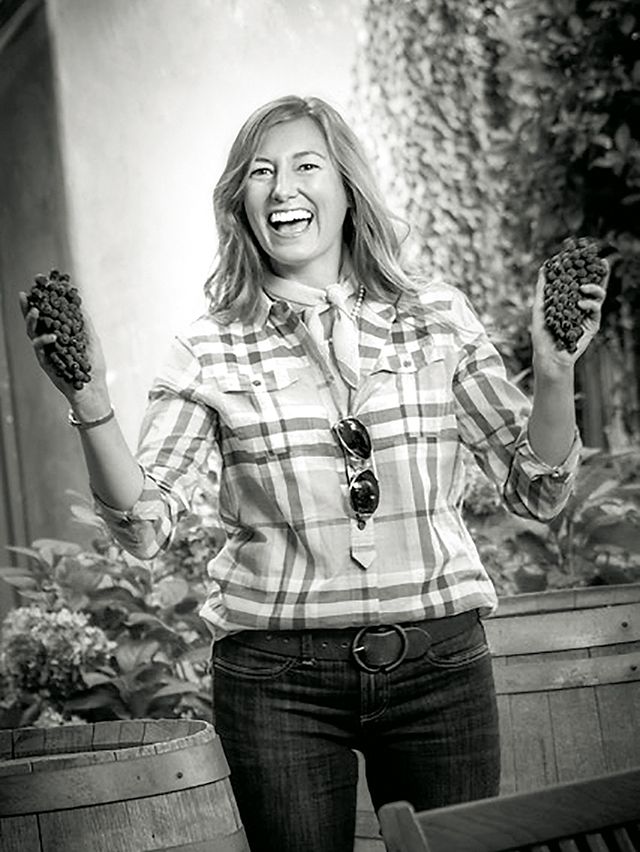 Where’s Stephanie Bolton? Clad in blue jeans and sporting sunglasses, she’s driving her Jeep to a vineyard. There she is, up all night writing a grant proposal for grapevine virus outreach. On other days, she’s hosting diplomats from France for agriculture discussions, hopping on a truck to tour nurseries, educating wine growers about marketing and, not to be overlooked, going to wine tastings galore.
Where’s Stephanie Bolton? Clad in blue jeans and sporting sunglasses, she’s driving her Jeep to a vineyard. There she is, up all night writing a grant proposal for grapevine virus outreach. On other days, she’s hosting diplomats from France for agriculture discussions, hopping on a truck to tour nurseries, educating wine growers about marketing and, not to be overlooked, going to wine tastings galore.
In Lodi, California, Bolton is grower communications & sustainable winegrowing director at the Lodi Winegrape Commission. She is using her Wake Forest education and then some to support LODI RULES for Sustainable Winegrowing (California’s first sustainable winegrowing certification program), viticulture research and the 750 farmers of Crush District 11, which consists of more than 100,000 acres of grapevines. She calls it ‘‘the perfect spot for the adventurous winemaker.’’
How did she get here? It started with her chemistry major at Wake Forest, with minors in secondary education and international studies and scholarships that supported her. (Of her George Foster Hankins and Robert P. Holding scholarships, she says, ‘‘I’m ridiculously grateful’’ and adds, ‘‘I couldn’t have asked for a better undergraduate experience.’’)
After working in non-science jobs for several years, she pondered her hard-science background: ‘‘It all clicked.’’ Off she went to check out her interest in wine. ‘‘I worked in the industry first. I sold wine. I worked a harvest and made sure I loved it, and then I made the decision to go to graduate school.’’
Later, with a master’s in food science and technology and a Ph.D. in plant pathology, she applied for the Lodi job. ‘‘There’s no stop button,’’ she says. ‘‘All of my friends are farmers — I watched the Super Bowl with farmers and their children last night. There’s no work-life separation, but I just realized, probably in the last week, that’s what I wanted. That’s why I worked so hard in school (because) I wanted to find a sustainable career that I loved, and 100 percent I have that.’’
Jennifer Litwak (’06)
Founder and executive director, Housing on Merit / San Diego
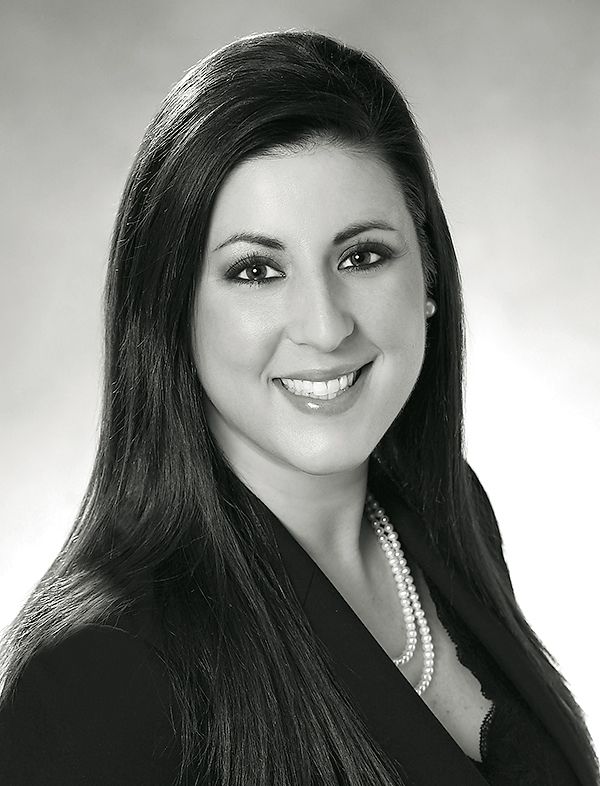 The seeds for Jennifer Litwak’s passion for affordable housing were planted during a study trip to the Deep South when she was a student. The trip, part of a class on social stratification taught by professors Earl Smith and Angela Hattery, included a bus tour of civil rights sites in Alabama, Louisiana and Mississippi.
The seeds for Jennifer Litwak’s passion for affordable housing were planted during a study trip to the Deep South when she was a student. The trip, part of a class on social stratification taught by professors Earl Smith and Angela Hattery, included a bus tour of civil rights sites in Alabama, Louisiana and Mississippi.
‘‘That trip was transformative,’’ says Litwak, a sociology major who grew up in Maryland and North Carolina. ‘‘I think back on that trip often. It made me much more aware of different life experiences and social justice issues.’’
Litwak, 35, went on to earn a law degree from the University of Denver Sturm College of Law, where one of her professors was Ann Scales, daughter of former Wake Forest President James Ralph Scales. After practicing law for several years in Los Angeles, she says she became a ‘‘policy wonk’’ on housing and homelessness.
She founded the nonprofit Housing on Merit (HOM) in 2011 to create a bridge to permanent affordable housing for vulnerable populations. HOM co-develops bond-financed and government-supported multifamily housing projects in California, Ohio and Washington, D.C. She has managed the closing of more than $300 million in multifamily acquisitions and overseen the development, preservation and renovation of more than 2,300 units of affordable housing. HOM also provides education, health and employment programs to residents.
Affordable housing is key to addressing social issues, Litwak says. ‘‘My passion for working with vulnerable populations started at Wake Forest. No matter what social justice issue I was working on, I came to realize that without stable housing, you can’t find a solution. Housing is at the core of everything.’’
She argues that we need to think outside the traditional housing box. It’s going to require taking risks, disrupting the traditional way of building and financing housing, and finding solutions that are scalable. ‘‘We need to offer innovative solutions to tackle one of the biggest social issues facing our nation.’’
John H. Crowe (’65, MA ’67)
Professor emeritus of molecular and cellular biology and director emeritus of the Center for Biostabilization at University of California, Davis / Davis
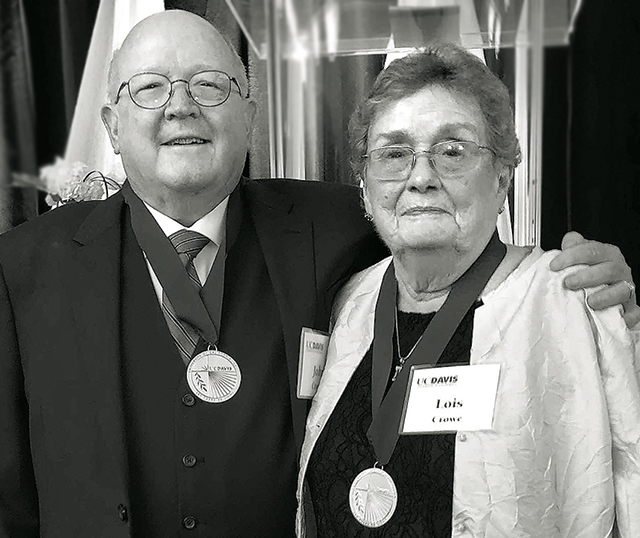
Ira Flatow, host of National Public Radio’s ‘‘Science Friday,’’ had this to say on air about John H. Crowe in 2016: ‘‘His curiosity all these years has changed the world of medicine forever.’’
That’s quite the worthy introduction for a scientist who has spent his life devoted to groundbreaking work concerning micro-organisms that survive complete dehydration. He went to Southern California to earn his Ph.D. He built his career and a lab (now the Center for Biostabilization) at the University of California, Davis, beginning in the 1970s. Last year, he and his wife, Lois Crowe, received the highest honor bestowed by UC Davis for their work as a research team that helped the university become one of the top-rated biological science programs in the country.
Crowe pays tribute to Wake Forest’s influence on him following the Soviet Union’s launch of the Sputnik satellite in 1957. ‘‘Congress panicked,’’ he says. ‘‘They authorized the National Science Foundation to go out and gather up the most promising young high school students they could find and take us to boot camp in science.’’ That’s how the young man from Morehead City, North Carolina, ended up in summer science camps, including one at Wake Forest. He read about microorganisms and went to collect some. ‘‘Tardigrades (also known as water bears) were the first ones. They’re such cute little animals. I fell in love with them and found out that yeah, you can dry them out; add water, and they come back to life,’’ he says.
The teenager had no way of knowing where his curiosity about microorganisms surviving dehydration would lead him: patents, academic papers, the minting of scores of Ph.D. and post-doc students, appointments to scientific boards of companies and life-saving applications outside the lab. According to UC Davis, the Crowes’ discoveries ‘‘led to inventions that are in widespread use in pharmacy, medicine and agriculture. For example, their work has enabled the drying of fragile drugs, human cells, foods and plants. Human platelets can be stored dry, improving their storage life from just five days to at least two years.’’ (Crowe retired 10 years ago from UC Davis, and he and his wife are grandparents of a 2004 WFU graduate.)
Crowe recalls how even as a teen, ‘‘I made a big case then … and have over and over again that curiosity-driven research is the raw material that drives applied science. If you kill curiosity-driven research that purely has no end in mind, you’re going to kill off life science. …’’
He reflects on his days at Wake Forest — ‘‘I had a great time’’ — studying biology and chemistry, going to football and basketball games and enjoying fraternity life. He also became enthralled with the arts: ‘‘It was all free. Just go pick up the ticket, and I went to everything!’’
‘‘A thrill’’ was hearing an opera singer and meeting her backstage in Wait Chapel. ‘‘That kind of experience just had me hooked,’’ he says. He and his wife constantly attend arts events, from the seasons of the San Francisco and Santa Fe operas to the Oregon Shakespeare Festival to the Sacramento Ballet: ‘‘We’re seeing something two or three times a week year-round.’’
Wendy Young (’88, MS ’89)
Senior vice president, small-molecule drug discovery Genentech Inc. / San Mateo
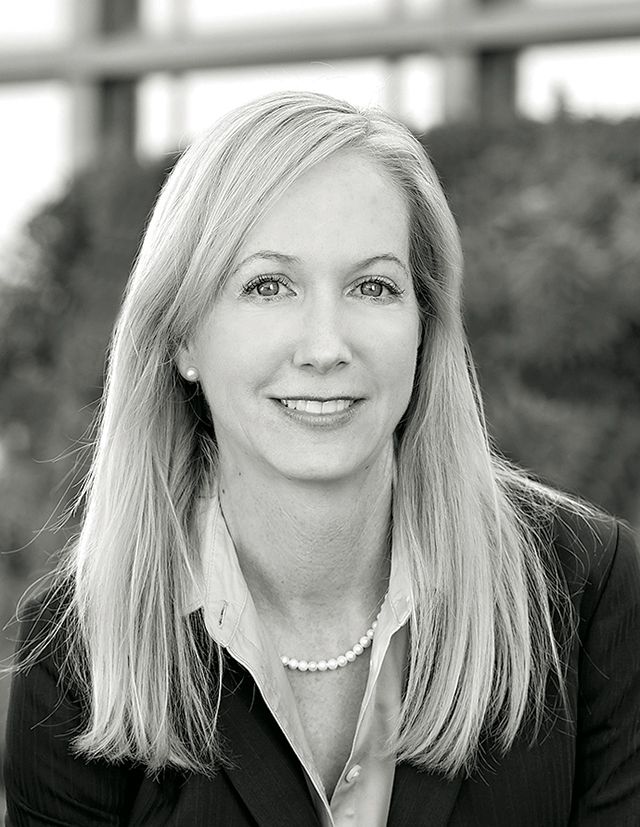 Want to know the secret of being a successful drug hunter? Perseverance, according to Wendy Young. ‘‘I’ve got that in spades,’’ she says. ‘‘You get knocked down a lot. You have to get back up.’’
Want to know the secret of being a successful drug hunter? Perseverance, according to Wendy Young. ‘‘I’ve got that in spades,’’ she says. ‘‘You get knocked down a lot. You have to get back up.’’
Young, a chemist by training, leads hundreds of drug hunters as a senior vice president at Genentech Inc., and she’s on a ‘‘drugging the undruggable’’ mission. ‘‘In the world of drug discovery and drug hunting … a lot of the low-hanging fruit has already been plucked,’’ she says, meaning ‘‘we got really good at making certain types of medicines’’ through what in her business is called lock and key drug discovery.
‘‘The key is the drug that you put into the lock, and we got really good at making these keys.’’ What’s left to conquer? ‘‘Biological targets that are much more difficult to drug.’’ Using innovative technologies to drug those tough targets is Young’s focus.
She’s co-inventor of Fenebrutinib, an oral, small-molecule drug that has reached phase II clinical trials. It has the potential to treat rheumatoid arthritis, lupus and an extreme form of hives. It’s just one of Young’s many achievements, which she says include more than 70 papers and patents.
Her day-to-day work is nonstop: listening to reports from Genentech drug discoverers whom she manages about progress on projects, weighing in on next steps and making decisions about investments. She meets with scientists and confers on business development. She advocates for students and women in STEM. ‘‘What’s so great about my job — my career — is that it doesn’t feel like a job. It feels like a hobby,’’ she says, ‘‘because it’s so exciting. I rarely watch TV because I’m so intrigued with everything that’s going on at work.’’
Ask Young how she ended up in California, and she laughs. ‘‘Well, like every story there’s a guy.’’ She met her husband, Mark Convery, when both were in graduate school at Princeton University. A physicist, he got a job at what was then called the Stanford Linear Accelerator Center. She started her career in California in biotech companies and joined Genentech 13 years ago.
Her path from her home state of New York to her undergraduate life at Wake Forest started with her winning a music scholarship. She was a flutist. But then she met ‘‘one of my superstar mentors,’’ Huw M. L. Davies, who taught her organic chemistry. She went in a new direction. ‘‘I thought it was putting the pieces of the puzzle together, and it just clicked.’’
So did California. ‘‘There’s a huge environment of ‘you can do this,’’’ she says. ‘‘‘We can get this done.’’’
Sara Creighton Boyer (’05)
Dentist + Owner of Studio Dental / San Francisco
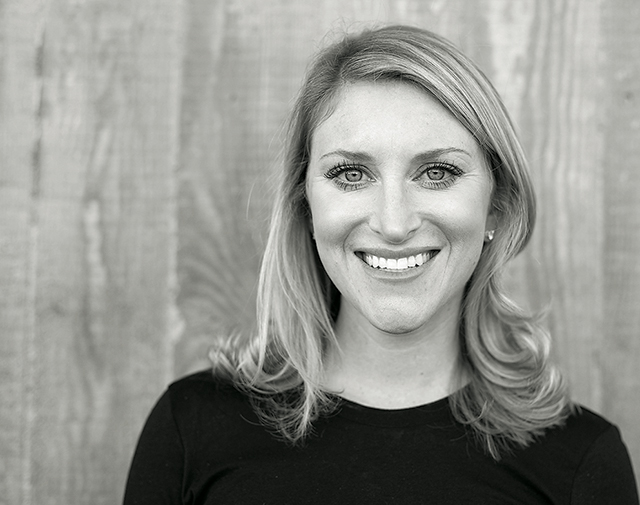
Don’t have time to go to the dentist? If you live in San Francisco, Dr. Sara Creighton Boyer can roll up to your office door in a custom-designed dentist office on wheels that was described by the website Refinery29 as ‘‘Uber for your choppers.’’
Boyer grew up in Boise, Idaho, wanting to be a dentist. She came to Wake Forest to play on the women’s soccer team and majored in health and exercise science. She credits Wake Forest’s liberal arts curriculum with instilling a sense of curiosity that led her to rethink the traditional dentist’s office.
She has called San Francisco home since going to dental school at the University of the Pacific. After graduating, she and a classmate opened their own practice that turned the staid world of dentistry upside down. Their sunny, plant-filled office was described as one of the coolest in the world by Inc. Magazine.
After a few years, Boyer left that practice to hit the road. She saw an opportunity to reach young tech professionals — who often won’t take the time to go to the dentist — at their offices. She used crowd-sourcing to raise money to transform a 40-foot trailer into an inviting, functional space that won accolades from the American Institute of Architects.
Her rolling office, Studio Dental, makes stops at some of the biggest names in the tech world, including Pinterest, Airbnb, Dropbox, Twitter and Uber. Operating in a city where parking is at a premium can present its share of problems. She negotiated a partnership with the city that allows Studio Dental’s trailer to park on city streets; in return, she offers free dental services to the homeless.
Boyer says San Francisco was the right spot to roll out her mobile office. ‘‘It could have worked other places, but I do think San Francisco and the tech companies are particularly unique,’’ she says. ‘‘The tech companies provide unparalleled benefits and were particularly receptive to this.’’
With her mobile practice firmly established, Boyer has reopened a bricks-and-mortar office in the city that she now calls home. ‘‘My friends are here — some of my closest friends here went to Wake — and my roots are here now.’’
Paul (’02) and Rachel Venuti Bullock (’02)
TV writer/producer and general manager of ShowClix online event company
Los Angeles and Pittsburgh
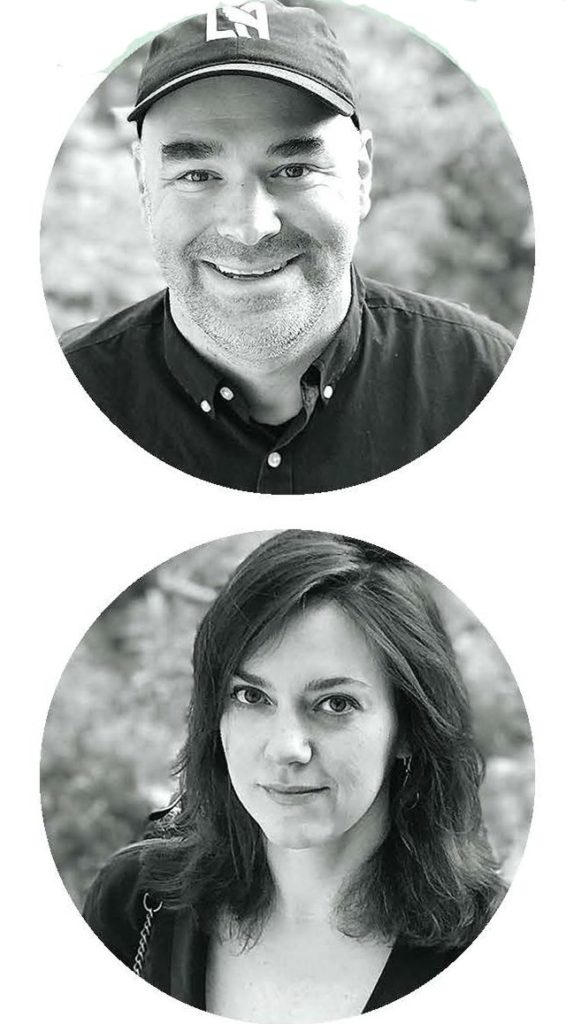 Rachel Bullock began looking last year for a new challenge in the technology industry. She expanded her job search outside Los Angeles when she realized her top prospects would require a two- to four-hour commute in notorious L.A. traffic.
Rachel Bullock began looking last year for a new challenge in the technology industry. She expanded her job search outside Los Angeles when she realized her top prospects would require a two- to four-hour commute in notorious L.A. traffic.
Little did her husband, Paul, realize he would end up with an even bigger commute — almost six hours by airplane. Rachel began in September working in Pittsburgh as the general manager of ShowClix, an online event division of Patron Technology with clients in more than 20 countries. Paul flies back and forth every other week.
But they found their calling in Los Angeles. Paul wrote for ‘‘Desperate Housewives’’ and ‘‘Devious Maids,’’ was associate producer on Syfy’s ‘‘Defiance,’’ has sold two TV pilots and is working on another that’s still under wraps. Rachel worked for McGraw-Hill Education in L.A., moved into digital publishing and was chief operating officer at Render Media.
Paul had his turn in 2004 at instigating a move. Two weeks after Rachel joined him in New York City and started her dream internship in publishing, Paul announced he had a job on a TV show called ‘‘Ed’’ — in California. They weren’t married yet, but Rachel made the ‘‘leap of faith’’ to join him.
When she arrived in 2005, Paul had a red convertible, an apartment at the beach and a job as post-production coordinator for ‘‘Medium,’’ a successful show starring Patricia Arquette. ‘‘I think we both were excited by the fact that you can go to L.A. and build your own version of the future,’’ says Paul.
The couple, both English majors, credit Wake Forest with giving them the courage to set off on new adventures. Rachel says her study abroad at Casa Artom in Venice, Italy, helped her see ‘‘that I could live somewhere else, that I could try something different.’’
They have stayed tightly connected with the University. Paul is on the Alumni Council, and Rachel completed her term in the spring. They were co-presidents of WAKELosAngeles and have joined WAKEPittsburgh. ‘‘Every week we’re doing something related to Wake in one form or another,’’ Rachel says.
